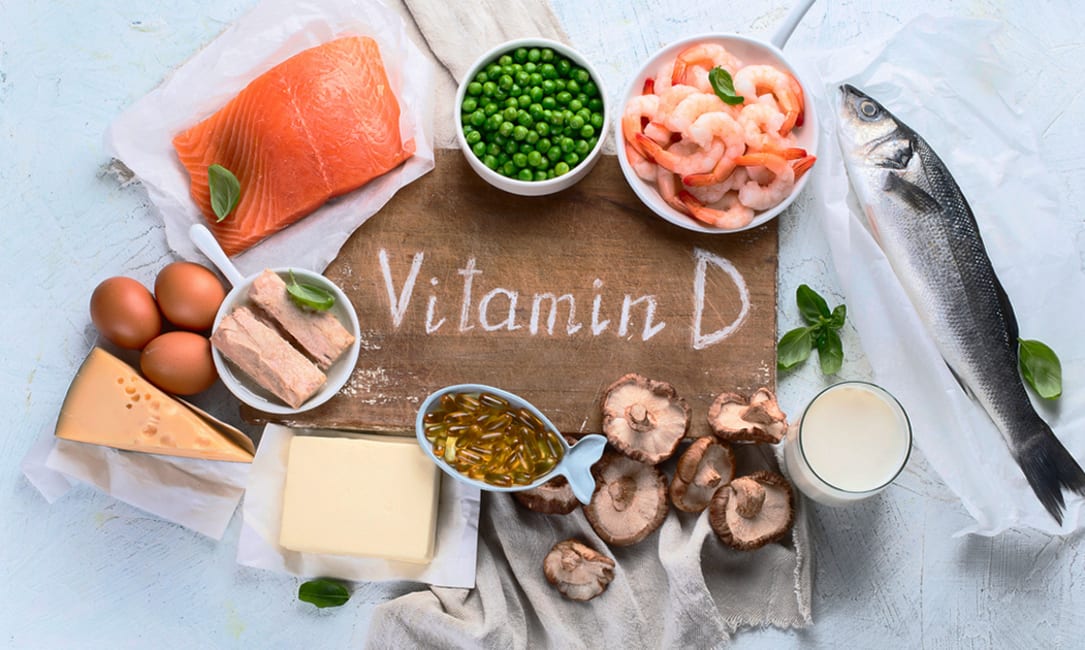Vitamin D and Zinc and the Virus: Can Zinc and Vitamin D3 Fight COVID-19?
Several studies have looked at the impact of vitamin D and zinc on COVID-19. Based on several publications and studies, vitamin D seems to be the “most promising” supplement for COVID-19 protection. Many studies have showed the link between vitamin D deficiency and COVID-19.

Co-Nutrients Reduce Your Vitamin D Requirement
You can minimize your vitamin D requirement by making sure you’re also getting enough magnesium. Magnesium is required for the conversion of vitamin D into its active form and research has confirmed higher magnesium intake helps reduce your risk of vitamin D deficiency by activating more of it.To maintain healthy levels, only 400 to 800 IU (15 to 20 mcg) of vitamin D is required daily, but, to boost low levels, higher doses, such as 2,000 IU daily, are used and are generally safe.
Vitamin D3 vs D2: What's the Difference?
In your diet, the most commonly found members are vitamin D2 and D3. While both types help you meet your vitamin D requirements, they differ in a few important ways.
Research even suggests that vitamin D2 is less effective than vitamin D3 at raising blood levels of vitamin D.
The vitamin comes in two main forms:
- Vitamin D2 (ergocalciferol)
- Vitamin D3 (cholecalciferol)
Vitamin D3 is only found in animal-sourced foods, whereas D2 mainly comes from plant sources and fortified foods.
Your skin makes vitamin D3 when it’s exposed to sunlight.
Vitamin D2 and D3 are also not equal when it comes to raising your vitamin D status.
Both are effectively absorbed into the bloodstream. However, the liver metabolizes them differently.
The liver metabolizes vitamin D2 into 25-hydroxyvitamin D2 and vitamin D3 into 25-hydroxyvitamin D3. These two compounds are collectively known as calcifediol.
Calcifediol is the main circulating form of vitamin D, and its blood levels reflect your body’s stores of this nutrient.
For this reason, your health care provider can estimate your vitamin D status by measuring your levels of calcifediol (Trusted Source).
However, vitamin D2 seems to yield less calcifediol than an equal amount of vitamin D3.
Most studies show that vitamin D3 is more effective than vitamin D2 at raising blood levels of calcifediol (Trusted Source, Trusted Source).
Zinc and COVID-19

Zinc has been shown in a lab study to inhibit regular coronavirus (not the current SARS-CoV-2) in a 2010 publication.
As of March 2021, there are 54 studies that have been launched to investigate the benefits of Zinc against COVID-19. You can review the status of these trials on clinicaltrials.gov.
Taking zinc long term is typically safe for healthy adults, as long as the daily dose is under the set upper limit of 40 mg of elemental zinc (PubMed).
Excessive doses may interfere with copper absorption, which could negatively affect your immune system as it can cause copper deficiencies, blood disorders, impair the absorption of antibiotics and potentially permanent nerve damage or loss of smell.
Zinc Sulphate is also part of Dr. Vladimir Zelenko anti-coronavirus protocol. Please take note that the protocol is experimental and has not been 100% proven. Do discuss with your doctor before taking the medication as per the protocol. You can check out his publication in the International Journal of Antimicrobial Agents.
Based on the statement released on 2 October by the U.S. president’s physician, zinc is also part of the treatment given to the US President. According to the president's physician, "Trump has been taking zinc, vitamin D, famotidine, melatonin and a daily aspirin.”
Conclusion
- Wear protective face mask. This is to protect not only yourself but others.
- Abundant evidence suggests that eating whole in fruits, vegetables and whole grains—all rich in networks of naturally occurring antioxidants and their helper molecules—provides protection against free radicals.
- Getting Enough Sleep
- Avoid Sugar, red meat and processed foods.
- Don't smoke.
- Take steps to avoid infection, such as washing your hands frequently, using hand sanitizer and cooking meats thoroughly.
- Try to minimize stress.
- Drink enough water to keep your body hydrated.
- Avoid excess alcohol.
- Avoid crowded areas.
- Regular physical activity (outdoor activities may not be allowed in countries with 'lock-down').
- Consult your nearest local healthcare provider if you have any doubt.

- Vitamin D3 — 1000–3000 IU/day. (Amazon)
- Vitamin C - 1,000 mg BID (twice daily). (Amazon)
- Quercetin 250 mg daily. (Amazon)
- Melatonin: 6 mg before bedtime (causes drowsiness). (Amazon)
- Zinc: 50 mg/day (elemental zinc). Zinc lozenges are preferred. (Amazon)
Disclaimer: The information on this website is not intended to replace a one-on-one relationship with a qualified health care professional and is not intended as medical advice. It is intended as a sharing of knowledge and information from the research and experience of third party sites. If you are pregnant, nursing, taking medication, or have a medical condition, consult your health care professional before using products based on this content.
.png)
.png)


.png)
.jpg)



Comments